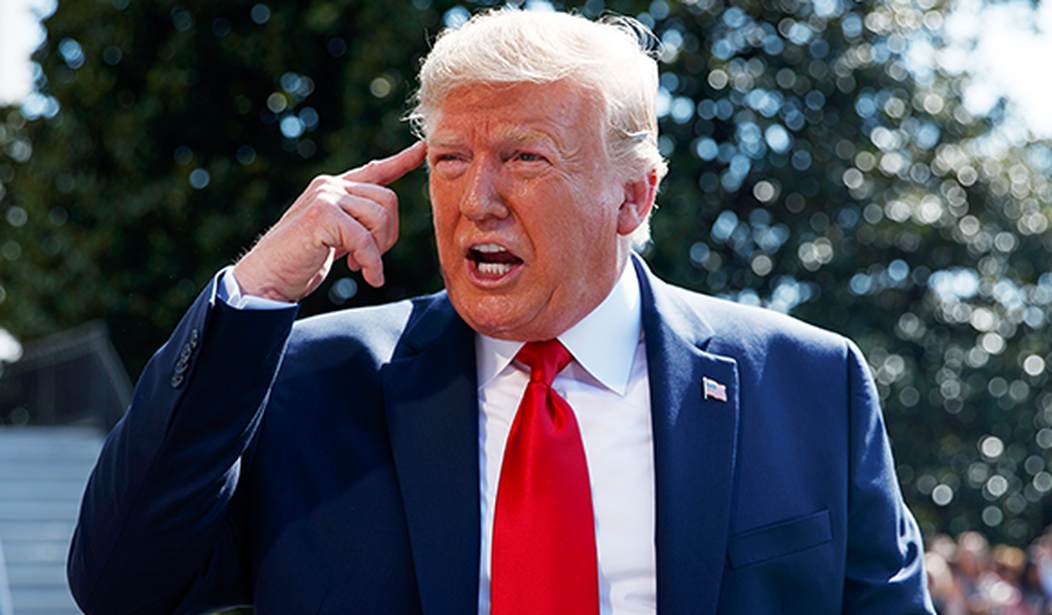Is the president backing away from his recent calls for gun control? At a campaign rally in Manchester, New Hampshire Thursday evening, President Trump’s focus was on treating mental illness, not passing gun control laws in the wake of active assailant attacks in Texas and Ohio. There was no mention of expanding background checks or even “red flag” laws at the rally. Instead, the president spoke of re-opening institutions and helping individuals with mental health problems.
“There is a mental illness problem that has to be dealt with. It’s not the gun that pulls the trigger — it’s the person holding the gun,” Trump said to roars and a standing ovation from the Manchester, N.H., crowd.
Trump used a similar line immediately after the dual shootings earlier this month at a Walmart in Texas and outside a bar in Ohio, saying that “mental illness and hatred pulls the trigger, not the gun.” In the weeks since, the president has urged Congress to strengthen background checks, despite opposition from the National Rifle Association. He backed red flag laws, which would permit law enforcement officers to temporarily take weapons away from people determined to be a danger to themselves or others.
It shouldn’t be too surprising that the president didn’t bring up gun control at his campaign rally. After all, gun control isn’t popular among his base, while supporting the 2nd Amendment clearly is. On stage with Trump last night was New Hampshire Governor Chris Sununu, who just vetoed three gun control bills passed by the state’s Democrat-majority legislature while touting the state’s efforts to expand mental health services. We’ll see if this is really a welcome move away from gun control legislation in the coming days, or if this was simply a bit of savvy campaign messaging.
“We don’t want to see crazy people owning guns,” the president said to reporters [before the rally]. In New Hampshire, he told the crowd that there was a need to “build new facilities for those in need” similar to mental institutions that were shut down decades ago.
“We will be taking mentally deranged and dangerous people off the streets so we won’t have to worry so much about that,” Trump said.
“We can’t make it harder for good solid law abiding citizens to protect themselves. We will always uphold the right to self defense and we will always uphold the 2nd Amendment,” the president went on to pledge.
I think it would be great if the president made mental health reform his focus going forward, and while there is a need to expand the number of in-patient beds and actute treatment options in states across the nation, there’s also a lack of outpatient services, particularly in rural areas, that needs to be addressed.
One option the president could consider, particularly for those rural areas, is telemedicine, or remote therapies that would allow individuals who don’t have access to in-person treatment options to get help online.
Increasingly, people who are suffering from behavioral health disorders are recognizing that virtual care can often be a highly effective solution,” said Dr. Lew Levy, Teladoc’s chief medical officer. “About 42 million Americans have anxiety disorders, and more than 16 million suffer from major depression. But most haven’t received treatment in the prior year.”
The big drawback to a telemedicine approach is that without the face-to-face contact between provider and patient, it’s easier for patients to not follow through with treatment. It’s certainly not a magic solution to the mental health crisis in the United States, but considering the skyrocketing suicide rates and lack of access to mental health care in rural America it could provide an opportunity for those most at risk to get the treatment they need.
If the president is serious about addressing mental health, there needs to be a focus not just on critical care and institutionalization of the very small number of individuals who may go on to commit acts of violence against others, but expanding access to the type of care that can help stem the rise in suicides that’s taken place since 2007. Many of those at-risk individuals won’t need institutionalization, but they do need help, and for far too many, that help is hard to find right now.









Join the conversation as a VIP Member